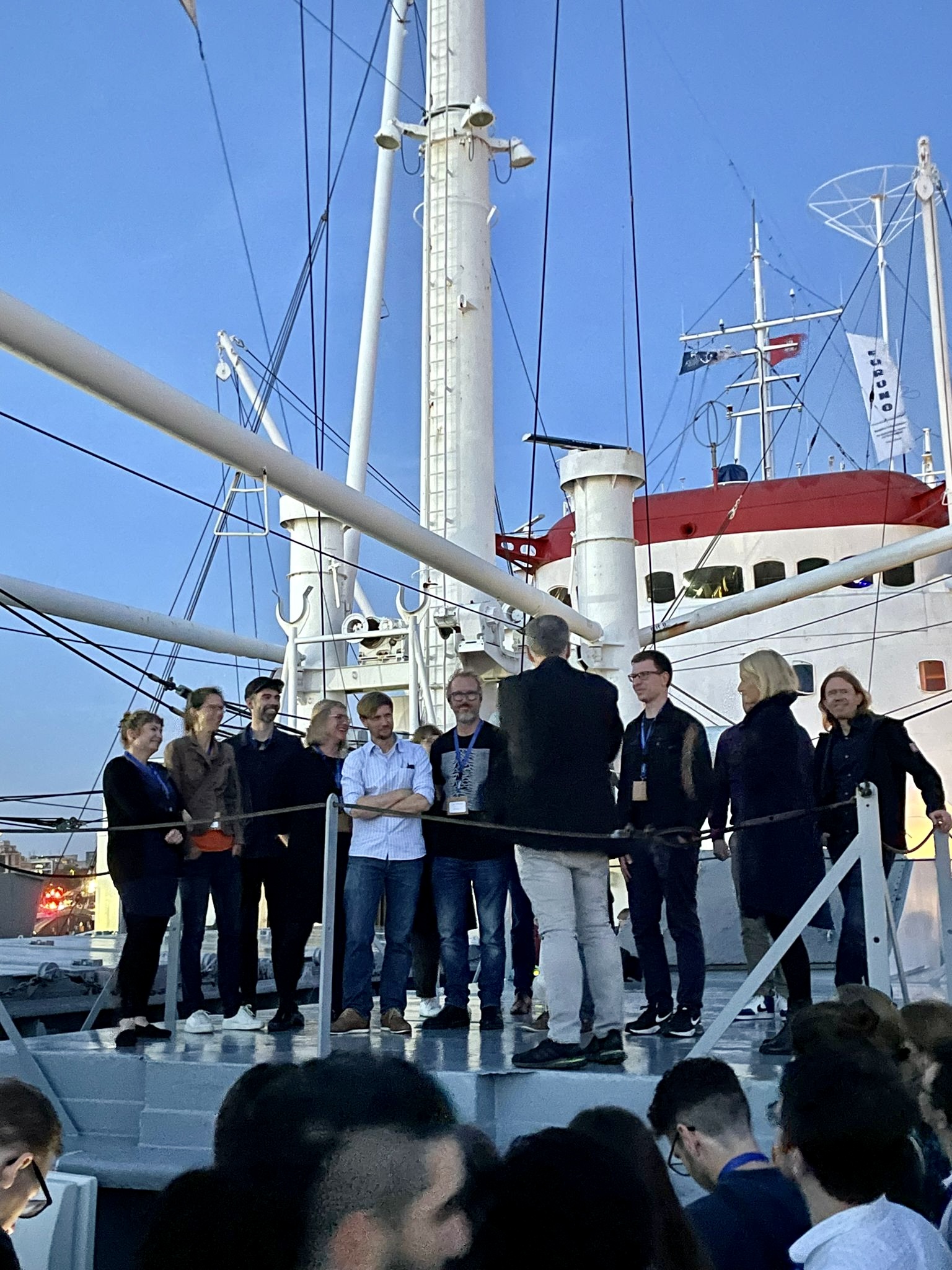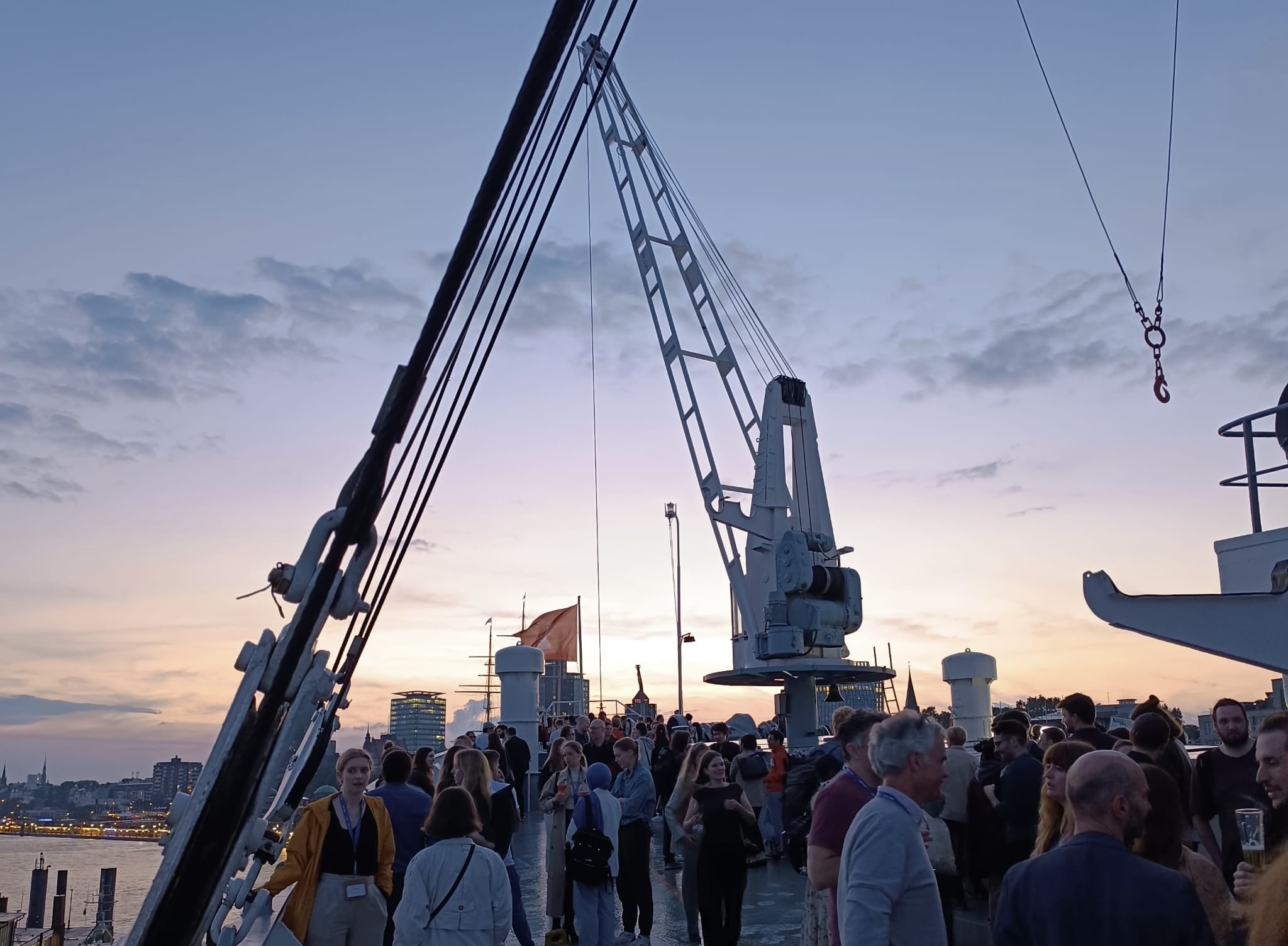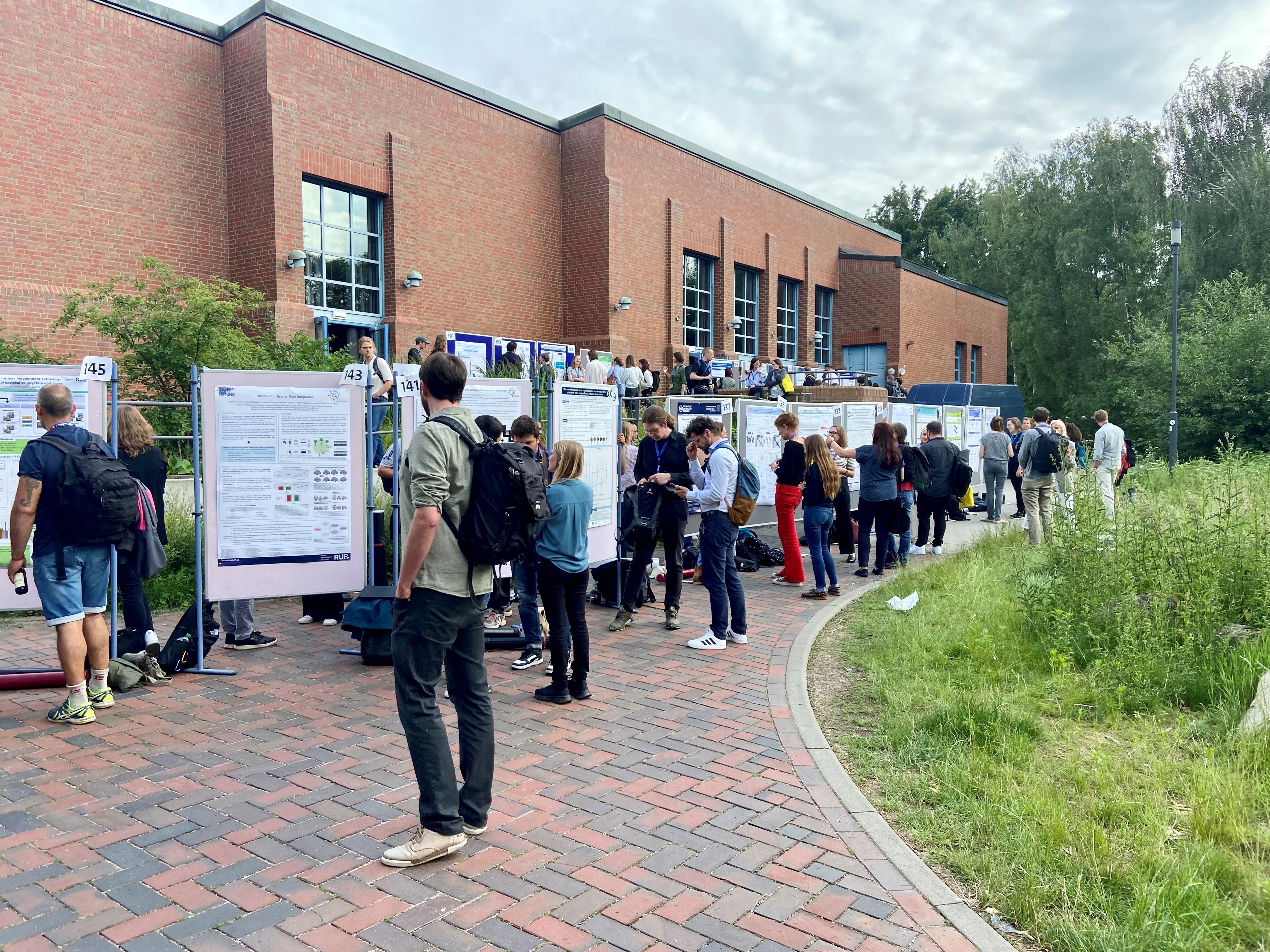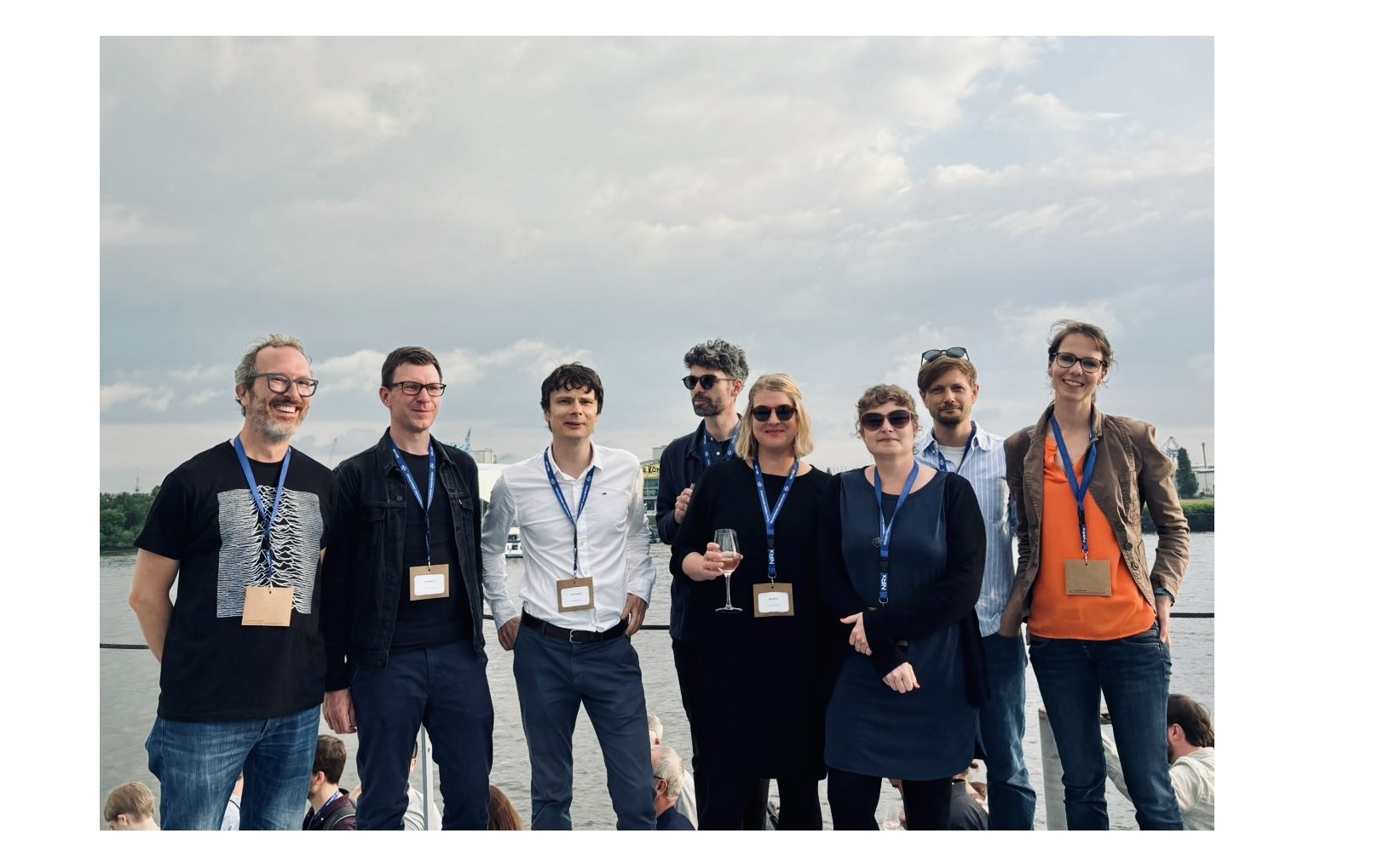Welcome!
Dear colleagues,
we are pleased to invite you to the 49th Annual Conference "Psychology and Brain" at the University of Hamburg from May 29 to June 01, 2024.
Organized in cooperation with the Division of Biological Psychology and Neuropsychology of the German Psychological Society (DGPs) and the German Society for Psychophysiology and its Application (DPGA), the tradition-rich conference will offer a broad spectrum ranging from the neurobiological foundations of behavior to application-oriented psychological research. The conference program will offer top-class keynote lectures, topic-specific lecture symposia and scientific poster sessions as well as pre-conference workshops for young scientists - and last but not least diverse opportunities for exchange and networking in a Hanseatic atmosphere.
The whole team is looking forward to welcoming you in Hamburg!
- Helen Blank
- Patrick Bruns
- Anja Riesel
- Brigitte Röder
- Sebastian Gluth
- Lars Schwabe
- Nico Schuck
- Tina Lonsdorf
- Jan Wacker
Responsible for the website: Celestina Hermida da Costa
Farewell/Thanks
We look back on a successful 49th Annual Conference "Psychologie und Gehirn " organized by the Biological Psychology and Neuropsychology interest groups of the German Society for Psychology (DGPs) and the German Society for Psychophysiology and its Applications (DPGA). We were delighted to welcome so many esteemed national and international scholars here in Hamburg and enjoyed the exchange, energy, and atmosphere. We would like to thank all participants for making the conference such a great success.
The PUG organizing team (Helen Blank, Patrick Bruns, Sebastian Gluth, Tina Lonsdorf, Anja Riesel, Brigitte Röder, Nico Schuck, Lars Schwabe, Jan Wacker)
Dear dance enthusiasts,
due to significant personnel issues, we regret to withdraw our participation in this year's social evening. Those interested in joining us musically can contact us via email at mario.reutter@uni-wuerzburg.de, so we can be back on stage in Würzburg. Best regards, The Psych'n'Groove Band
Best regards,
The Psych'n'Groove Band
Keynote Speakers
-
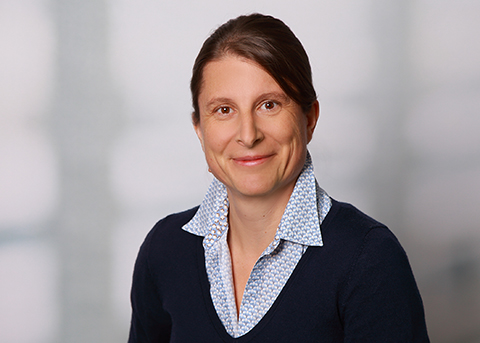
Katharina von Kriegstein
Technische Universität Dresden
Human auditory communication – from visual face areas to sensory thalamus
Understanding what is said and recognising the identity of the speaker are two important tasks that the human brain is faced with in auditory communication. For a long time, neuroscientific models of auditory communication have focused mostly on auditory language and voice-sensitive cerebral cortex regions to explain speech and voice identity recognition. However, we now know that the brain uses even more complex processing strategies for recognising auditory communication signals, such as the recruitment of dedicated visual face areas, as well as subcortical sensory thalamus structures. In the first part of my talk, I will present a short overview on our neuroscientific findings how visual face areas help processing auditory communication signals. I will also show studies that translate the neuroscience findings to computational models. In the second part, I will focus on the contribution of subcortical sensory thalamus structures to speech recognition. I will review 7-Tesla neuroimaging findings from typically developed participants as well as developmental dyslexics that suggest a major role of the sensory thalami in speech recognition.
-
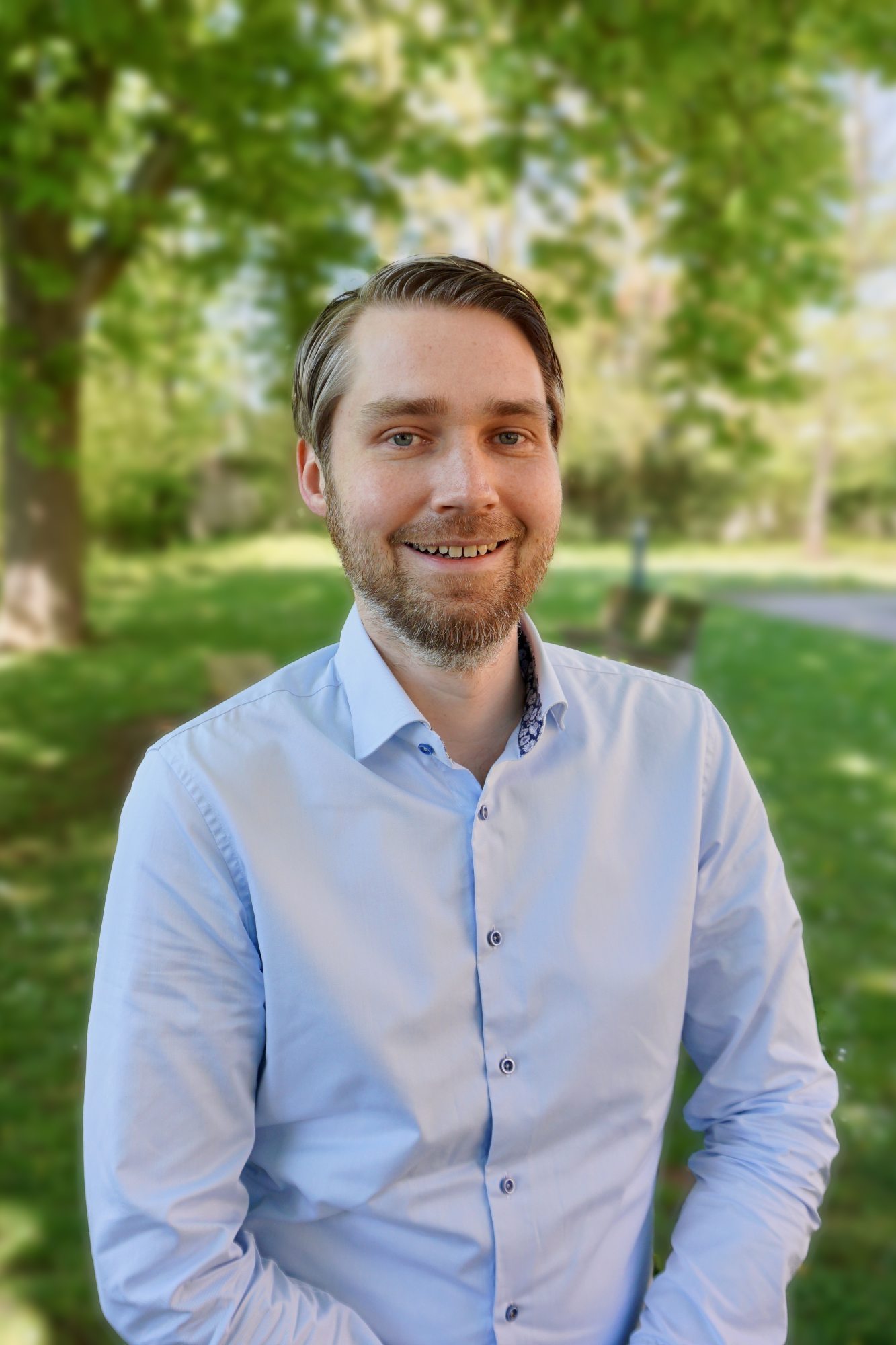
Nils B. Kroemer
Universität Bonn and Universität Tübingen
Body-brain interactions in the control of motivation
To ensure survival, optimal reward-seeking requires adaptation to internal and external states, and it is thought that our actions operate on a deeply engrained metabolic budget. Although goal-directed behavior has often been linked to prefrontal circuits, emerging evidence suggests a pivotal role of ascending signals from the body in tuning reward-related behavior according to bodily demands. In this talk, I will review the growing support for bodily signals as key modulators of instrumental behavior and the neural pathways subserving adaptation. First, I will summarize the motivational effects of interventions targeting ascending bodily signals, such as non-invasive transcutaneous vagus nerve stimulation (tVNS). Second, I will discuss the potential mechanistic role of bodily signals, such as gastric myoelectric frequency that regulates the speed of the digestive tract, in the control of motivation. Third, I will evaluate the implications of a focus on body-brain interactions for an improved understanding of the etiology and treatment of frequent mental disorders using major depressive disorder as an example. Fourth, I will highlight remaining challenges and open questions to unlock the potential of novel techniques to effectively modulate goal-directed behavior via the body. Taken together, conceptualizing bodily signals transmitted via vagal afferent as catalysts for goal-directed actions opens new avenues for theory-driven translational work that may help contextualize key motivational symptoms as a result of aberrant body-brain interactions.
-

Karin Roelofs
Donders Centre for Cognitive Neuroimaging and Radboud University Nijmegen
Human defensive reactions and their role in approach-avoidance decision making
Behavioural scientists often assume that automatic defensive threat reactions, while essential in explaining animal behavior, only have limited value when it comes to understanding human behavior. There is, however, increasing evidence that defensive reactions, such as freezing, have an impact on subsequent approach-avoidance decisions under acute threat in humans. Understanding the mechanisms that drive such decisions is particularly relevant for patients with anxiety disorders, whose persistent avoidance is key to the maintenance of their anxiety. In recent years, computational psychiatry has made substantial progress formalizing the mechanisms through which we make (mal)adaptive decisions. However, most current models simply ignore the transient psychophysiological state of the decision maker. Here, I argue that the balance between para-sympathetic and sympathetic activity is instrumental in driving the psychophysiological state of freezing, and that it influences approach-avoidance decisions under acute threat in different ways. To illustrate, I first explore the effects of freezing on different kinds of human action decisions under threat. Next, I discuss recent translational (rodent-human) work that has helped to characterize the neural mechanisms implicated in animal and human defensive freezing. Finally, through two prospective longitudinal studies, I show that individual differences in susceptibility to freezing are predictive of the development of anxiety symptoms. Overall, this work suggests that defensive threat reactions and associated psychophysiological states not only affect acute decision making, but also predict long-term symptom development. As such, these factors have great importance for resilience research, and should constitute an integral part of any theory of human decision making.
Location
This year's annual conference "Psychlogy and Brain" will be held at the Burgerhaus Wilhelmsburg.
Bürgerhaus WilhelmsburgMengestr. 20
21107 Hamburg

Registration
| Tickets | Early Registration untill 03/31/2024 |
Full Registration untill 05/27/2024 |
Social evening |
|---|---|---|---|
| Members DGPs/DGPA |
210€ | 270€ | 125€ |
| Non-Members | 280€ | 350€ | 125€ |
| Students /PhD* |
110€ | 140€ | 95€ |
Party tickets are now available for students and doctoral candidates who have already registered for the conference. The party tickets can be booked until May 19th (10 p.m.). Additionally, it is also possible to book a regular ticket for the social evening by the same date.
Submit presentation
An abstract must be written for each contribution to an accepted symposium. The length must not exceed 250 words. Please note that abstracts must be written in English. Please do not use graphics or linking.











